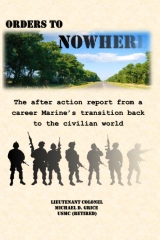I have participated in more career and job fairs than I can count, and I have also had plenty of conversations with others who have made the circuit of job-seeking events. Many of those I chat with are frustrated, and some of them have reached the point of “job fair fatigue” that they are giving up on attending them.
A lot of their frustration comes from an unclear set of expectations for what job fairs are about. Not all job fairs are the same, and not all career fairs have the same goals, opportunities, or areas of interest. Just like everything else in life, job and career fairs are different, and if you don’t recognize that going in then you, as a participant, will likely become frustrated and disillusioned.
There are many different types of fairs, and each of them provides a different service and experience for the transitioning military or veteran participant as well as for the companies and organizations that attend. The underlying goal for fairs is universally the same – to provide avenues to employment for vets and those in transition – but how that goal is achieved varies with each and every fair. To help those who are not familiar with the differences am writing a string of posts to highlight different types of events.
The first type of career fair is one that is focused on a specific niche of transitioning military and veterans. Military MOJO is one organization that specializes in matching transitioning and veteran military officers and noncommissioned officers who have earned college degrees. They have four conferences spread across the country throughout the year (in Austin, Virginia Beach, Washington D.C., and San Diego) Dozens of companies are on hand at each conference to meet with hundreds of veterans, and a part of the engagement process includes resume review and placement of resumes onto a database that is accessible by participating companies.
Military MOJO’s next conference goes in Austin, Texas on March 27 and 28. To learn more about the conferences, you can read the Military MOJO Conference Press Release. If you for some reason you cannot follow the link, I have reposted the contents of the release below:
MOJO (Military Officers Job Opportunities) is a premier hiring event pairing commissioned military officers, senior non-commissioned officers, and non-commissioned officers holding degrees with national employers seeking veterans for leadership opportunities. MOJO will be hosting four events this year in Austin, TX; Virginia Beach, VA; Washington, DC and San Diego, CA. Candidates and companies interested in this unique opportunity are invited to visit Military MOJO’s new website at http://www.militarymojo.org for more information on how to attend.
These events will showcase Commissioned Officers (formerly and currently commissioned): meet exclusively with Junior Military Officers (JMOs) and Senior Military Officers (SMOs) from the ROTC, OCS, CWO (Chief Warrant Officers), National Guard and graduates from the U.S. Air Force Academy, Coast Guard Academy, Merchant Marine Academy, Naval Academy, West Point, Norwich College, The Citadel, Villanova, VMI, and other military schools. Senior Non-Commissioned Officers: meet with SNCOs (E-7, E-8, E-9) who are experienced high-potential, skilled leaders. They have hands-on technical and functional training, four-year college degrees. Transitioning Non-Commissioned Officers: meet with young, ambitious, college-degreed transitioning NCOs who potentially have previous corporate experience. These candidates have a minimum four year B.S. or B.A. degree from an accredited university and some have their MBA’s. Candidates skill set/experience will include: STEM, Six Sigma/Supply Chain, Operations, Logistics, Project Management, Sales/Marketing, Manufacturing, Cyber/Intel, Consulting, Government/Defense, and many areas of Engineering. Most candidates have TS/SCI, CI & FS POLY Clearances.
Candidate registration includes individual resume review and career coaching, a networking reception, industry seminars and face-to-face interactions with national companies. Our volunteer team in comprised of former military officers and corporate executives who are committed to the mission of supporting veterans transitioning into the private sector. Company registration includes booth space, interview space, a recruiter focus group (best practices military hiring), networking reception with complimentary food, beverage & bar. Companies will receive resumes of registered candidates 2-3 weeks prior to the career fair. There are no extra fees for hires. For a list of companies currently attending the event click here.
The dates and locations for the 2014 hiring events are:
- Austin, TX – March 27-28, 2014
- Virginia Beach, VA – June 19-20, 2014
- Washington, DC – September 25-26, 2014
- San Diego, CA – December 4-5, 2014
Each event will feature a company check-in, recruiter focus group, industry seminars/sponsorships and networking reception on the Thursday prior to the career fair to bring the companies and candidates together. The career fair will take place on the following Friday from 9am-4pm with a one hour lunch break. To learn more about the conference and registration for the different locations, visit http://www.militarymojo.org.
About Military MOJO: Military MOJO hosts exclusive hiring events throughout the year to pair military officers with high profile employers. The niche career conference showcases candidates who are currently and formerly commissioned officers: ROTC, OCS, Service Academy – West Point, Naval Academy, Air Force Academy, Coast Guard Academy, Merchant Marine Academy, Citadel, VMI, VA Tech, Warrant Officers. Some in attendance will be Wounded Warriors Officers. To learn more about Military MOJO and upcoming events, visit http://www.militarymojo.org.
Their career fair is a great example of one that focuses on a specific niche of veterans, and if you are in that group then you should certainly check it out. In my next post we’ll take a look at job fairs on military bases.

